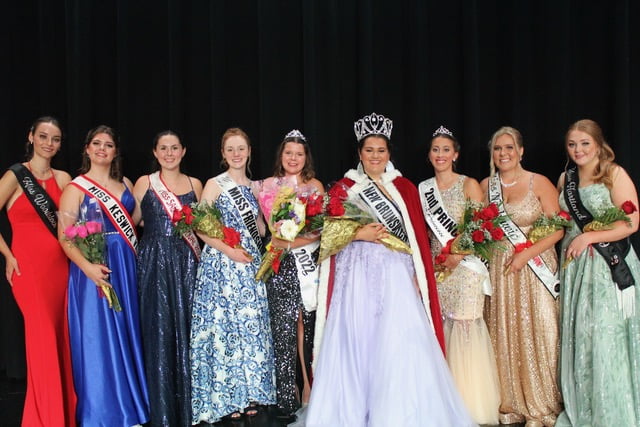Crown argues Butler’s motive was ‘revenge,’ defence says crown witnesses unreliable
The crown and defence counsel made their closing arguments in the trial of Rodney Butler on April 4, and both conceded the death of Christine Pelletier-Thibodeau was a tragic ending to a day filled with violence and gunfire.
However, Crown Prosecutor Rodney Jordan and Defence Counsel Alex Pate each offered a different reasoning about the verdict for the accused. After two hours of submissions, Associate Chief Judge Brian C. McLean reserved his decision until July 2 at 1:30 p.m.
Butler, 50, of Bulls Creek, was charged by RCMP with intentionally discharging a firearm while reckless as to the life and safety of another person, indictable assault, uttering threats, using a handgun to kidnap Chris Demerchant, unlawful confinement, possession of a weapon dangerous to the public peace, possession of a firearm without a licence, and illegal possession of a firearm in a vehicle on Nov. 13, 2021, at Bulls Creek.
No charges have been laid in relation to the killing of Pelletier-Thibodeau, who died as a result of her injuries following a shootout outside Butler’s residence. Police tape was erected around the property, which was surrounded by a vehicle salvage yard.
“Homicide is not a cloud over what came before,” said Crown Prosecutor Rodney Jordan. “It is how it ended. This case is not about who shot Christine.”
Jordan told the court Butler was thirsty for revenge when he headed to Demerchant’s home at Scotts Siding on the day of the incident. Jordan said Butler planned to confront Ryan Purvis about threats made the previous day at the salvage yard. Purvis was staying at Demerchant’s home at the time. (Purvis later died in an unrelated drowning in Woodstock in 2023).
“The one thing that started this whole thing was bad blood between Mr. Purvis and Mr. Butler,” Jordan stated.
Jordan said Butler was also angry with Demerchant for being a bad business partner. During the trial, testimony from one witness revealed Butler paid off a debt for Demerchant.
The crown lawyer argued that testimony from four eyewitnesses had built a solid case for the charges against Butler and made sense of how the day unfolded.
On the other hand, Jordan contended Butler’s testimony lacked credibility. He said the accused “minimized what he did” and admitted to some elements of the charges in an attempt to bolster his credibility.
“All the witnesses said things were nasty, that it was a bad situation,” Jordan explained. “Mr. Butler says ‘no’ we were just going to retrieve a couple of old vehicles.”
Jordan maintained that there was a great deal of danger involved in what Butler said was a “routine retrieval of vehicles” for salvage.
During the trial, Butler did admit he had a handgun on the day in question and that he assaulted Demerchant by punching him. He also admitted to firing the handgun in the woods in Benton but was evasive about whether he was trying to shoot Demerchant’s friend, Ryan Purvis.
Under cross-examination, Butler agreed he fired several shots into the back of the car parked in the woods using a nine-millimetre handgun. The Smith and Wesson gun was never located by police after the incident.
Butler told the court he did not know where the handgun went. He thought he put it back under the seat of Pelletier-Thibodeau’s Ford Escape. She was the driver of the vehicle during the day-long incident. Police towed the vehicle away during the investigation.
Butler denied he kidnapped and pistol-whipped Demerchant with the handgun in the backseat of the vehicle. He also testified he never drove a knife into the table at Demerchant’s home, and he did not escort him from the residence at gunpoint to go find Purvis.
Photos presented by the crown showed Demerchant suffered injuries to his face and head. There were also bloodstains where he was seated in the vehicle.
Butler said Demerchant was injured when he punched him, and he fell to the ground outside the vehicle, hitting his head on a tire rim. Then Butler said Pelletier-Thibodeau and Grant kicked Demerchant repeatedly with their boots until he told them to stop.
After chasing Purvis in the woods, driving a van into a ditch, and visiting a friend, they took Demerchant to Butler’s home at Bulls Creek. Demerchant testified during the trial that he thought Butler intended to kill him.
However, Butler denied any further confrontation with Demerchant, noting he even apologized to him for punching him earlier in the evening. He said they drank beer and socialized until the phone rang, and Pelletier-Thibodeau passed it to Demerchant. It was around 1 a.m.
A few minutes later, Butler said two people were standing outside in the yard in the dark. They thought someone was trying to rob money from the Ford Escape. Pelletier-Thibodeau went to the basement door, and a shot rang out. She was hit in the neck.
Defense Counsel Alex Pate said the case against Butler was based “entirely on credibility and a lot of the witnesses had motivations to lie.” He argued these witnesses were “incentivized” when they told their story in court.
Pate noted two witnesses, Krista Grant and Kenneth Hatheway, who were close friends of Demerchant. He said there were problems with how police took Hatheway’s statement. Butler’s friend, Timothy Grant, testified for the crown, and charges against him were withdrawn.
“He threw Mr. Butler under the bus,” said Pate. “He said what he had to say to get himself out of trouble.”
Meanwhile, Pate said Chris Demerchant had a criminal record and a history of misleading the authorities.
“You can’t rely on what he’s saying, when he says he has no problem with perjury,” Pate told the court.
Pate questioned why some people involved in the case, such as Earle Delong or Troy Demerchant, were not called to testify. Their absence left holes in the case.
“There’s enough missing here for reasonable doubt,” Pate said. “We will never really know what happened. What we do know is that Ms. Pelletier-Thibodeau was shot and killed right before Mr. Butler’s eyes.”
Based on the evidence, Pate said Butler should be acquitted of kidnapping and intentional discharge of a firearm, charges which could land him in federal prison. He said his client was the “perfect witness” and gave the most detailed and clear account of the incident.
The crown clarified that Earle Delong refused to give a statement about a visit to his home at Dead Creek on the night of the alleged kidnapping. Troy Demerchant was not called to the stand because his testimony would have been based on hearsay. He showed up outside Butler’s residence to save his brother, Chris, but had no firsthand knowledge of what had happened that day.
“This case was made long before they got to Bulls Creek,” Jordan asserted.














